FAQ
EQ is the abbreviation for Emotional Intelligence, which means the ability to express and control your own emotions so that you can process and respond to others. This helps to build stronger relationships at work and in your personal life. Having a good EQ also means that you can manage your stress better, which ultimately helps to improve your performance, physical and mental health.
Emotional intelligence is the ability to express and control your emotions and to also relate, interpret and understand them in order to respond to others accordingly. Having good EQ means that you're able to not over or under react in situations and also manage your interpersonal relationships - both at work and in your personal capacity. There are four branches of emotional intelligence which is self management, self-awareness, social awareness and relationship management.
There are several methods to improve commication processes at work. One of them is through better understanding behavioural and communication preferences, allowing people to adapt approaches to meet business objectives. From leadership management development to conflict resolution, knowing how to build and maintain relationships in the workplace helps to improve communication and grow the emotional intelligence of the team.
There are four branches of emotional intelligence that are equally as important as the next.
1. Self-awareness; You know who you are and understand what your triggers and motivators are.
2. Self-Management; Learning how to balance commitments and control your emotions, especially when unexpected circumstances arise.
3. Social awareness - Learning how to recognize emotional cues in other people and your surroundings and knowing how to adjust accordingly.
4. Relationship management; the ability to build relationships so that when it comes a time to work together, ideas and easily be shared and executed.
DISC Flow offers different Training solutions which all have their own recommended pace. Typically completing an online assessment takes between 10 - 15 minutes. Each of our certifications comprise the DISC behavioural model and emotional intelligence to create a tool that helps teams to communicate, build on strengths and reduce conflict in the workplace.
Whether you work together in an office or your team is spread across the world, our DISC Flow® programmes deliver comprehensive workplace solutions that engage every employee. We aim to build more productive and effective relationships at work by createing a personalised learning experience. This helps participants understand and appreciate the different priorities, preferences, and values each individual brings to the workplace, while establishing the ideal ways to communicate with each other that benefits each employee and the organisation itself.
The DISC model has been around for decades. The use of a adaptive questioning leads to DISC Flow reports resonating with respondents and positive awareness being created. We ensure to use sophisticated, up-to-date algorithms to analyze users responses and deliver accurate feedback in line with the answers.
There are several examples of communication problems.
1. Not being aware of how others might perceive our communication style and the impact that has on their engagement.
2. Assumption that co-workers will handle a situation the same way you would.
3. Not communicating in ways that connect with other peoples preferences which may shut down conversations and opportunities.
4. Not understanding different approaches to conflict resolution and being able to flex an approach to open up communication with others.
Dominance style: Direct and firm, goal-orientated, strong-willed and decisive.
Influence: High-spirited and enthusiastic, energetic and adventurous, optimistic and inspirational.
Steadiness Style: Humble and tactful, patient, well-balanced and even-tempered and harmonious.
Compliance: Analytical and systematic, accurate and perfection-seeking, sceptical, measured and reserved and private.
Psychometric testing is a way that companies see if you are a good fit for their organisation. The tests are meant to measure your cognitive abilities, personality, behaviour, leadership style etc. The two areas that are tested are your personality and your ability. Ability tests take on different forms such as, numerical, verbal, diagrammatic, logical, inductive and error checking. A personality test are normally structured as a phrase and the candidate must rate how much or little they agree with the statement.
DISC is a communication tool that helps to improve how teams work and communicate with each other. The assessment determines what your behaviour style is and how to use it to your advantage in the workplace to communicate better with your team. DISC Flow goes even further and incorporates Emotional Intelligence which helps to shape your understanding of how others operate and use it to your advantage.
The DISC model is a theory of behaviour categorization. DISC Flow is designed to take that categorization and to use it as a communication tool. DISC is an acronym for the four different behaviours, namely Dominance, Influence, Steadiness and Compliance.
The first theory of DISC was from psychologist William Moulton Marston in his 1928 book titled, emotions of normal people. His definition of DISC was Dominance, Inducement, Submission and Compliance. However, Marston never patented his findings. The DISC model was first published as a psychological test in 1956 by someone else - an industrial psychologist named Walter V Clarke - but he used a different acronym (ASSA) which stood for Aggressive, Socialble, Stable and Avoidant. Today, the acronym DISC is more diplomatic to show that there are no right or wrong behaviour traits.
